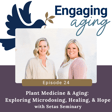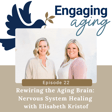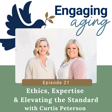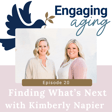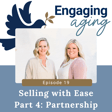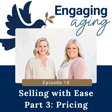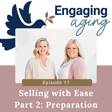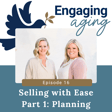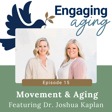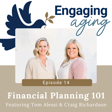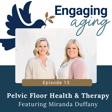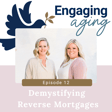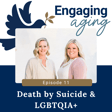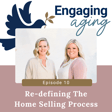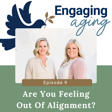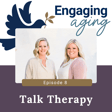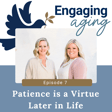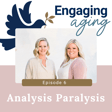
Finding the Spark: Holistic Approaches to Dementia Care with Ember Holistic
If dementia has touched your life—whether through a recent diagnosis, a loved one’s changing needs, or your work in elder care—this episode is for you.
Erin sits down with Shari Flight of Ember Holistic to explore how a holistic approach can transform dementia care for both the person living with cognitive impairment and those who support them. From recognizing the earliest signs and navigating the moment of diagnosis, to adapting the home environment, fostering engagement, and sustaining caregiver well-being, Shari shares practical tools and heartfelt wisdom.
We discuss why seeing the person beyond the diagnosis matters, how to preserve independence through “doing with” instead of “doing for,” and why planning ahead can ease the emotional, logistical, and financial toll of the dementia journey.
Whether you’re an older adult, a family caregiver, or a professional in aging services, you’ll walk away with hope, clarity, and tangible steps to help keep the spark alive—no matter where you are in the journey.
Connect with Ember Holistic:
🌐 Website: www.emberholistic.com
📧 Email: info@emberholistic.com
📱 Social Media: @EmberHolisticCareLLC on all platforms


